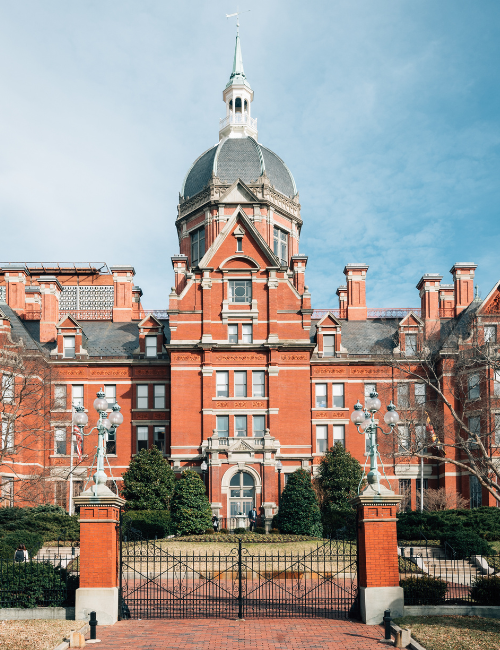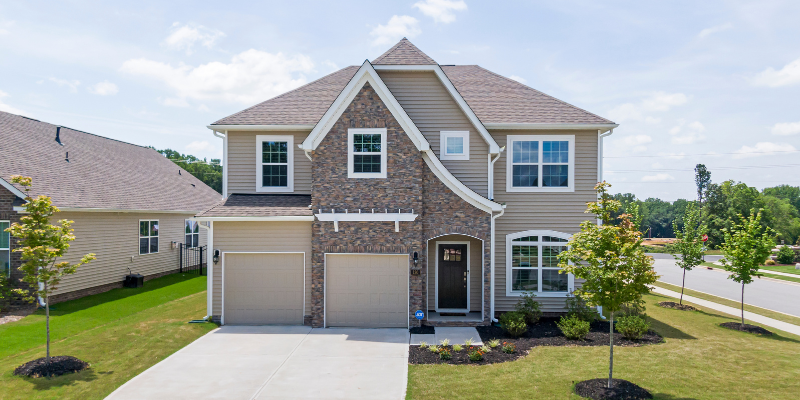
Panda Pro Home Buyers should register and maintain all vacant homes in Baltimore as city regulations require. Doing so helps avoid fines and supports the safety and appearance of the community.
Understanding Baltimore’s Property Vacancy Laws
The property vacancy statutes of Baltimore are intended to address the challenges that vacant homes present, which can negatively impact the aesthetics and safety of the neighborhood. Baltimore proprietors must register vacant properties with the city’s Department of Housing and Community Development per these regulations.
This registration is essential for guaranteeing adherence to local ordinances designed to preserve property standards and prevent urban decay. In addition, homeowners must comply with specific maintenance obligations to ensure that vacant properties are secure and free of hazards.
These laws require routine inspections to prevent properties from becoming targets for vandalism or contributing to neighborhood decline. This underscores the significance of comprehending all legal obligations associated with property vacancy, as noncompliance with these regulations can lead to substantial fines and penalties.
Baltimore’s strategy ensures that property owners are held accountable and fosters community well-being by effectively administering unoccupied homes.
Key Factors to Consider When Leaving Your House Vacant in Maryland
When leaving your home vacant in Maryland, particularly in Baltimore, it is critical to understand local legislation and potential consequences. Homeowners must be aware of the city’s vacant property registration laws, which are designed to minimize urban blight and maintain community safety.
Failure to register a vacant dwelling might result in hefty fines and legal issues. Proper insurance coverage is crucial, as typical plans may not cover losses caused by empty homes for extended periods.
Security measures should protect the property from vandalism and squatters, such as installing alarm systems or collaborating with local security services. Regular property maintenance is also necessary to comply with city rules governing lawn care and building maintenance, ensuring that the house stays in good condition and does not attract unwelcome attention.
Understanding these elements can help homeowners avoid penalties and protect their investment while their property is empty.
When leaving your Maryland home vacant, secure and maintain it, manage utilities, or sell your home for cash in Baltimore and other cities for a quick and convenient option.
Legal Implications of Long-term Home Vacancy in Baltimore
Homeowners in Baltimore need to know the law about leaving their homes empty for long periods. The city has rules to deal with empty homes that are meant to keep the community safe and protect property values.
People who own empty homes must sign up for the city’s Vacant Building Notice program. You could face big fines and other punishments if you don’t follow these registration rules.
Baltimore’s housing code also says that all empty buildings must be maintained to specified standards to prevent them from worsening, which could lead to vandalism or safety problems. Suppose a property is considered a public nuisance because it hasn’t been taken care of. In that case, the city may take legal action against the homeowners, such as placing a lien on the property or even foreclosing on it.
Homeowners need to know these rules so they don’t get into trouble with the law and can help keep Baltimore’s neighborhoods stable and bring them back to life.
Essential Steps to Secure Your Vacant Home in Baltimore
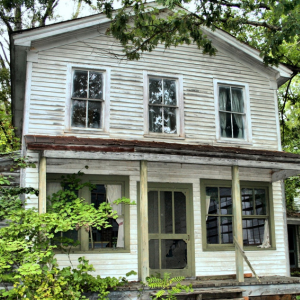
Implementing a number of critical measures is imperative to guarantee the safety of your vacant Baltimore home and adhere to local regulations. To prevent potential legal complications and penalties, homeowners should initially register their vacant properties with the Baltimore City Department of Housing and Community Development.
Implementing effective security measures, including surveillance cameras, alarm systems, and high-quality locks, to prevent vandalism and break-ins is imperative. Regular maintenance is also crucial; maintaining the home’s exterior by mowing the lawn, removing detritus, and ensuring that it appears inhabited can prevent it from becoming a target for crime.
Furthermore, the property’s condition can be monitored through routine inspections by trusted neighbors or property management services. Promptly addressing any repairs, particularly those concerning structural integrity or weatherproofing, will safeguard against damage caused by the elements.
Lastly, it is essential to maintain sufficient insurance coverage designed for vacant properties to protect against potential liabilities or hazards that may arise during the property’s unoccupied period.
The Impact of Neighborhood Watch Programs on Vacant Properties
Neighborhood watch programs are a big part of how Baltimore deals with the problems caused by empty homes. These community-led projects make neighborhoods safer and more secure by encouraging inhabitants to be more aware of their surroundings, which can stop crimes from commonly happening in empty homes.
Vandalism, squatting, and illegal dumping are more likely to happen on empty properties. Neighborhood watch groups work hard to stop these problems. These programs help keep property values up and make neighborhoods safer by arranging frequent patrols and making it easier for residents to talk to local authorities.
Also, neighborhood watch programs get everybody in the community involved and working together, which makes residents feel like they own the area and are responsible for it. This proactive strategy helps keep an eye on empty homes and helps people follow Baltimore’s rules for keeping these properties up to code.
Neighborhood watch programs work closely with law enforcement to learn about people’s worries about empty houses. This information helps them respond more quickly to problems that may arise.
Common Risks Associated with Leaving a House Unoccupied
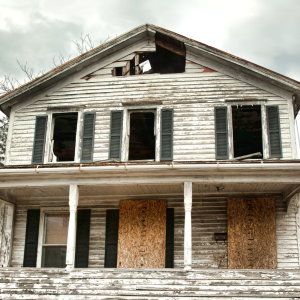
Leaving a house unattended in Baltimore might expose the property to several problems that homeowners should consider. Vandalism is a significant worry, as abandoned homes frequently draw unwanted attention from vandals who may cause damage or deface the property.
Furthermore, burglary is a widespread occurrence, with robbers targeting vacant homes to steal expensive things or fixtures. Another risk is that maintenance issues like water leaks or bug infestations may go unreported, resulting in costly repairs if not addressed swiftly.
Insurance issues also occur, as many insurance companies include terms for idle houses that may result in denied claims if sufficient coverage is not maintained. Furthermore, abandoned residences are more prone to fire hazards due to potential electrical problems or unattended appliances, endangering the property and surrounding homes.
Finally, leaving a property vacant for an extended time can result in a loss of value and significant fines from local authorities for failing to comply with Baltimore’s restrictions on preserving inhabited appearances, which aim to uphold community standards and avoid urban blight.
Leaving a house unoccupied risks burglary, damage, and maintenance issues. If you have an empty property, at Panda Pro Home Buyers, we buy houses for cash in Frederick and the surrounding areas, offering a fast and hassle-free sale.
Effective Property Management Strategies for Vacant Homes
To follow the rules and protect your investment, managing empty homes in Baltimore takes a well-thought-out plan. Instead of getting fined or in trouble with the law, homeowners must first learn about Baltimore’s rules about empty homes, like registering them and keeping them in good shape.
It’s important to check on the property regularly to keep it safe and free of damage or theft. Strong security measures like alarm systems and video cameras can also keep potential thieves away.
It’s required by city code to keep the outside in good shape, which includes mowing the yard and clearing snow. Doing so also makes the house look better from the street, which can help you sell or rent it. The basic level of services also keeps plumbing problems from happening in the winter and makes it look like the house is occupied.
A reputable property management company can give you peace of mind by handling day-to-day tasks and ensuring that all parts of the property follow Baltimore’s rules for vacant houses.
Preparing Your Home for an Extended Vacancy Period
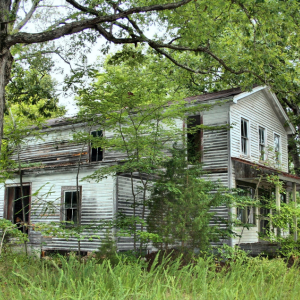
In Baltimore, it’s important to follow local rules and take precautions to make sure your home stays safe and well-kept when you’re getting it ready for an extended vacancy. To avoid possible fines and follow city rules, inform the authorities that you plan to leave the house empty.
Make sure all of your utilities are being handled correctly. You might want to turn off the water to avoid leaks or pipe bursts, and keep the heat low in the winter to avoid damage from freezing. Put strong locks on all doors and windows to keep people out, and use timed lighting systems to make it look like someone is home, which will discourage people from breaking in.
Check the outside regularly for maintenance issues like overgrown plants or a buildup of trash, which can attract thieves or show that the property hasn’t been cared for. You should hire a property management service or a reliable friend to check on the house regularly, pick up the mail, and report any problems right away.
These cautious steps will protect your investment and help you comply with Baltimore’s rules about empty homes.
The Role of Technology in Monitoring Vacant Houses
In Baltimore, technology is essential for overseeing idle properties and ensuring residents adhere to local requirements. Advanced surveillance systems, such as intelligent cameras and IoT sensors, are increasingly employed to identify illicit access or potential dangers in vacant premises.
These systems offer instantaneous notifications to property owners and local authorities, facilitating prompt responses to emerging situations. Moreover, data analytics technologies facilitate monitoring occupancy and vacancy trends, allowing homeowners to remain apprised of their property’s condition.
Mobile applications provide accessible platforms for remote surveillance, enabling homeowners to oversee security protocols from any location. By incorporating these technological solutions into their management methods, property owners can markedly diminish the risk of vandalism or decay while complying with Baltimore’s rigorous regulations on vacant properties.
What Is the Vacant Home Program in Baltimore?
The Vacant Home Program in Baltimore is an essential project designed to tackle the widespread problem of abandoned properties in the city. This program, administered by the Baltimore Department of Housing and Community Development, aims to enforce restrictions on empty properties and guarantee proper maintenance to prevent safety issues and local blight.
Homeowners of vacant properties must register their residences with the city and adhere to designated maintenance criteria to avert deterioration. The program incorporates fines for proprietors who do not comply with these standards, motivating them to inhabit, sell, or renovate the houses.
By engaging with Baltimore’s Vacant Home Program, homeowners can aid community regeneration and evade fines and legal issues. This strategy preserves property values and cultivates safer and more dynamic communities across Baltimore.
Can I Leave My House Vacant?
Leaving a house vacant in Baltimore is subject to some restrictions and guidelines that homeowners must fully comprehend. According to Baltimore’s housing rules, houses that have been uninhabited for an extended period must meet strict vacancy registration criteria.
Homeowners considering leaving their properties vacant should be informed that if the property remains unoccupied for an extended period, they must register it with the city’s Vacant Building Registration program. Failure to do so may result in fines and penalties, as the city seeks to minimize urban decay while maintaining neighborhood safety and beauty.
In addition, property owners must guarantee that all utilities are safely disconnected or maintained to avoid dangers. Local ordinances also require regular maintenance, such as lawn care and exterior upkeep, to prevent houses from becoming eyesores or targets for vandalism.
Understanding these restrictions is critical for Baltimore residents who want to keep their homes vacant without incurring legal or financial penalties. Property owners who follow these principles can effectively manage their real estate assets while supporting Baltimore’s efforts to maintain vibrant and safe communities.
What Is the Difference Between Vacant and Abandoned?
Baltimore homeowners must know the difference between “vacant” and “abandoned” properties to follow the city’s rules. A vacant property is a residence that is not being lived in but is still cared for by the owner. It may be empty temporarily because the owner is moving, getting ready to sell, or renovating.
On the other hand, an abandoned property shows that the owner has neglected it. These homes are generally in bad shape and represent safety threats to the community because the owner doesn’t care for or manage them. Baltimore’s housing laws are stiffer for abandoned properties than for vacant ones.
Homeowners should follow city rules about maintaining their homes so they don’t become abandoned. By knowing what these terms mean, homeowners can avoid fines for not following the rules when managing vacant dwellings.
Vacant properties mean unoccupied, but abandoned means left unattended and neglected. Not all abandoned properties are vacant. Contact Us at Panda Pro Home Buyers for more information.
What Is the Vacant Reinvestment Program in Baltimore?
The Vacant Reinvestment Program in Baltimore addresses the problems caused by empty homes while also helping the neighborhood expand and the economy grow. This initiative aims to make it easier for homeowners and investors to fix up empty homes, turning them into important community assets.
The Vacant Reinvestment Program encourages property owners to help reduce urban blight by offering cash incentives, tax credits, and quicker permitting processes. The initiative helps individual homeowners by raising property values and strengthening neighborhoods by giving them a sense of pride and security.
Homeowners who want to take advantage of investment opportunities while following Baltimore’s rules against vacant properties need to know how this program works. The Vacant Reinvestment Program is crucial for changing Baltimore’s urban landscape and boosting its economy. It works with local government agencies, non-profit organizations, and community members.
Want to sell your home without the usual delays and expenses? Panda Pro Home Buyers offers fair, all-cash offers and handles the entire process from start to finish. Call (410) 775-8558 today for a no-obligation consultation. Quick, easy, and on your terms.
| TENANCY | LEASE OR RENTAL AGREEMENT | TENANCIES | SUB-TENANT | RENTAL PROPERTY | BALTIMOREANS |
| WEST BALTIMORE | EAST BALTIMORE | COMPLAINT | INFORMATION | SUIT | FILED SUIT |
| LAWSUIT | CIVIL ACTION | BRANDON SCOTT | SCOTT | PRICES | UNITED STATES |
| U.S. | RODENTS | MONEY | LAWYER | INSURANCE AGENTS | VACANTS TO VALUES |
| REVENUES | RECEIVERSHIP | PUBLIC HEALTH | PUBLIC HEALTH ISSUES | POVERTY | POPULATIONS DECLINED |
| POPULATION DECLINE | FORECLOSE | EMINENT DOMAIN | COPYRIGHT | BOND | THE DEPARTMENT OF |
Helpful Baltimore, MD Blog Articles
- Sell Your Baltimore Home Below Appraised Value
- Baltimore’s Regulations On Leaving Homes Vacant
- Attorney Fees For House Closings In Baltimore
- Appraisal Required Repairs In Baltimore
- Living In A House During Probate In Baltimore
- Cost Of Replumbing A House In Baltimore
- Sell Your Parents’ House In Baltimore
- Homeowners Insurance for Selling a House in Baltimore
- Cost Of Asbestos Removal For Homes In Baltimore
- Sell A Portion Of Your Property In Baltimore
- Understanding The Rise In HOA Fees For Baltimore, MD Homeowners
- Selling Your Parents’ Home In Baltimore, MD, To Fund Elder Care
